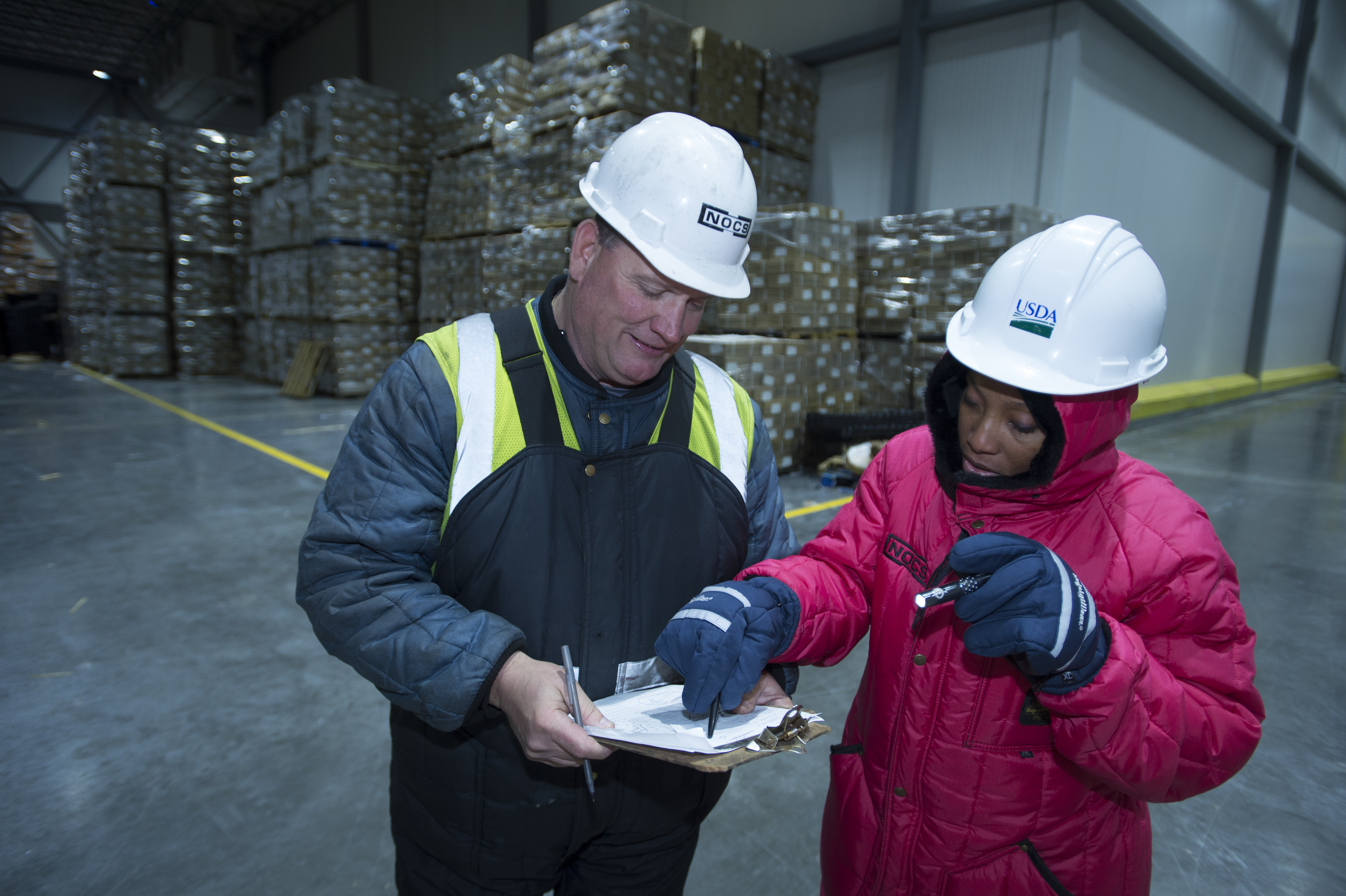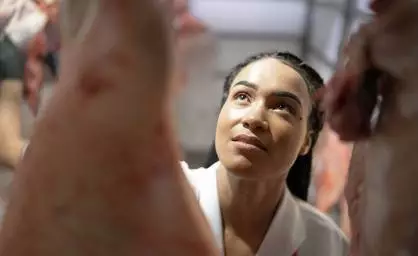
Aaron Dudley

Research focus: Aaron Dudley condensed hemp extract into nanoparticles and incorporated these into packaging materials. He evaluated the effectiveness of the antimicrobial packaging coupled with pulsed UV light technology to reduce Salmonella in raw chicken breasts. The research helped to improve our understanding of using natural antimicrobials to reduce pathogens in chicken and of antimicrobial resistance.
Why did you get involved in food safety?
In my childhood, our family once ate at a major fast food buffet chain and became sick after eating the food. After this situation, I became interested in protecting the public's health.
How do you like seeing the changes in food safety technology?
As the food industry embraces emerging food production technologies (e.g., vertical farming, cellular agriculture), I am excited and interested to see how emerging food safety technologies such as non-thermal technologies like pulse electric field, pulse UV light, and high-pressure processing will grow to meet the needs of these areas.
Food packaging is one area we deal with every day. We’ll be able to provide protection beyond what's in the normal packaging today to mitigate the growth of bacteria and to show with the packaging film when food starting to spoil.
Explain in five words what you did.
Collaborated, networked, researched, developed and presented.
What was a typical day like for you?
A typical day for me started at 5 a.m., checking emails, reviewing my pre-planned to-do list and starting my daily projects, which included electrospinning new nanofibers or making changes to an existing nanofiber. From mid-morning until the afternoon, I attended classes. After classes in the afternoon, I would go to the food microbiology lab and count plates from the previous day's experiments, updating my notebook and Excel sheet with the data. At the end of each week, I would compile pictures of the electrospinning process and all the data from experiments run into a slide deck and present them to my on-campus lab group. I compiled and condensed the slide deck to present to my FSIS mentors monthly.
What's something you learned in school that you applied during the fellowship?
Digital fluency, informational literacy, and responding to failure. Digital fluency was necessary because in this virtual fellowship, being comfortable working independently and in a virtual platform with different software was critical in my success. It came from my experience on campus with online classes and weekly lab meetings. Information literacy was also essential because, from discussions with my mentors, I had to investigate appropriate scholarly resources to discuss, and present the findings and significance of my research. Lastly, learning how to analyze, understand, improve, and move forward from my mistakes in school helped me grow, and I took this experience with me into this fellowship.
For example, I presented my poster at the International Association for Food Protection. I received feedback that some text was too small. People were coming up to it and trying to read it. The next time I had to do a poster, I made the font was a little bit larger. You learn from mistakes like that to bounce back, take feedback, and then effectively use it to be better.
What stood out to you about working with an FSIS mentor?
The most beneficial aspect of participating in this program with my mentors was connecting with proven food safety experts and learning about their work, attention to detail, and work ethic. Being exposed to this weekly has helped me grow as a scholar and professional. The ability to connect my mentor’s current project with my experience and ongoing research helped me to better understand the science-based decision making that’s involved in FSIS policy and to visualize a future with the organization.
My mentors were instrumental in coaching me on how to network with other industry professionals. Also, the other advice that I can take from this experience is to really document everything. Make sure when you're doing experiments that you document all the critical information, and that you have your data together so people outside of your organization can understand what you've done. I learned from my professor and FSIS mentors how to take ownership of my work.
I have the confidence to be an independent researcher and scientist if I do come to a governmental agency. This is a really good preparatory program for young scientists.
What was a milestone that you're proud of in this program?
Crossing the line from being a cautiously supervised graduate student to an independent researcher. This fellowship fueled my growth and helped start the transition into being more independent as a scholar, researcher and professional.



